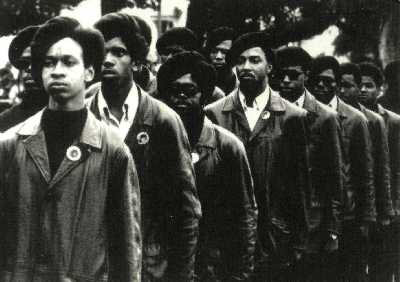The "I's" in Activism: A Chat with Nate C (Part 2)
Ca vas, Comrades
I have been in touch with Nate again after a lull in our conversation due to his being preoccupied with a recent move to a City in the Sky.
A few how-you-dos and a couple restaurant recommendations later and we are back up to speed with our ongoing discussion. For the uninitiated, Nate is a friend of mine who recently left Nashville. More accurately, Nate was a guy I met one time at a party who I promptly had an hour of engaging conversation with concerning his upcoming wedding, his impending move and - most importantly for our purposes - his upcoming trip to Greece to make a film about the civil unrest that had erupted in Athens following the police shooting of a teenage boy that occurred last December.

To catch up on our earlier installment, simply click the "Nate C" label at the bottom of this post.
I got the last word in our last post, addressing the idea that people in America are to prosperous to revolt in the way we've recently seen in Iran. Nate touches on this idea and then we get back to our talk about Greece.
And now, back to our conversation...
The "I's" in Activism: A Chat with Nate C (Part 2)
NC: The Iranian people seem to have a pretty miserable daily existence. I'm poor in this country and I can still manage to eat out some, have a couple of drinks, and pay for an education. Iranians also believe in a god, and that leads them to believe in justice and absolutes. Religion makes people militant.

In Greece, the Greek Orthodox church runs the show. They own real estate that they rent out to the Greek Government. To believe in the State is to believe in the Church. Inversely, to not believe in the Church is to not believe in the State. Kids in school there are reading the existentialists. They read classical philosophy in middle school. They were wearing black, riding scooters, smoking cigarettes, and drinking red wine before it was cool. The educated youth are godless and stateless, unbound by any sense of dominance or other assortments of damnation.

JN: I would assume that this plays into the appeal of Anarchistic ideas among the young. There is universal yearning among all young people everywhere, you can see the literary echoes of the idea of this kind of Children's Paradise in Burrough's Wild Boys or among Peter Pan's Lost Boys. However, the Greek youth obviously have their own particular circumstances in regards to the way the State and the Church affect their lives. In America, these forces also wield tremendous power, but not officially. It's far more subtle, and ultimately, can't really be compared. Apples to Oranges. Of course, they are living within a historic shadow that is so vast and ancient that it literally stretches across the ideals, values and foundations of our own country. Contemporary Americans have a hard time comprehending the weight of that kind of history.
NC: The word paradigm starts to address the question, but it's even broader than that. The paradigms of Athens are influenced by the cultural heritage and history, and vice versa. The Athenian lifestyle would be a good starting place toward understanding.
From what I was able to gather, my perception of Athenian culture is that it's very leisurely. Wait staff in restaurants there are paid a healthy hourly wage, so rushing around to earn the highest amount of gratuity possible within a shift is alien to them. Friends stop by to visit waiters in the cafe, and they sit and have coffee together while on the clock. At cafes in the U.S., I've seen owners disable electrical outlets to keep people from "camping" with their laptops. It's not that way at all in Athens.

They take vacations regularly--little weekend excursions to an island or the countryside. That sort of thing isn't cordoned off and reserved for a week each year like in U.S. working culture.
Television is very new in Greece. The teens didn't grow up in front of it, and the mid-thirties is the beginning of the main TV-watching demographic. The difference between the TV watchers and the others is shocking; early teens are taking up the styles and lifestyles they see on MTV-- a fairly new development in Greece. When people are not watching television, they are engaged in active forms of entertainment, rather than passively watching pictures of other people being active. I would argue that this creates a predisposition toward action, such as what culminated in political action.

JN: This is an important point. As we began to address in our last conversation, revolt is rarely the result of cause and effect. There has to be an underlying predisposition that will allow for people to activate for change. There may be a demand, but a willingness to answer that call cannot be assumed. Clearly many factors go into such decisions, but the passivity of American media culture can undermine activism on many levels including physical health, education, political awareness etc.
NC: We can't make the mistake of putting too much stock in the types of entertainment available there though. Education in Greece is free. Even college is free, and without limits on the amount of time they can continue their studies if in good standing. Many young people are very well read and educated. Most speak a few languages, and know their history and government. Their "classics" are not puritanical popular novels and poems but philosophical tracts thousands of years old about free thought, democracy, and the nature of man's existence. They have a better shot from the beginning reading Plato than Edgar Allen Poe.
JN: Although I have read and enjoyed much of the Am. Lit. canon, your point is well taken. Another continuing irony is that our culture shares the same common roots, but I don't think I would've read Plato until late in high school - if not college - if it hadn't been for the library of books my father had collected. It's become such a cliche - especially in the last 8 years - but people who don't know their past are truly doomed to create wrong-headed tomorrows or at least let them be created in their name.

NC: In a town where there's a sense of a past, there's also a clearer idea of the future perhaps. Athenians want their mark on the world to be minimal, and the mark they do leave to be positive, like all healthy humans. When they see their government threatening that with their actions, they take it very seriously. An awareness of what effected change in the past makes "true believers" that believe in future reforms.
JN: There is a sense of empowerment in this kind of recollection. Successful civil actions build on themselves. I find it so odd that America is still trying to decide whether is was right for the radicals in the '60's to protest the Vietnam War.
This gets very Chomskyan. There is a constant battle over which version of history we will honor. Members of the Labor Movement literally fought and died in the streets of this country so that children were no longer employed in factories and so workers could work only 40 hours with a weekend. Today, many Americans will ignorantly talk down unions, but you can bet they'd never give up their weekends. There is a lack of understanding/knowledge about events that aren't even 100 years old.

The unrest in Greece began with the police shooting of a teenager in Athens. America isn't immune to such brutality. What is the relationship between the average Athenian and the police?
NC: Law in general in Greece is not taken very seriously. In the U.S. we have the most skilled guns in the world pointed at us every time we step out of line. The cops in Athens are twenty-something college drop outs. They lounge in the shade on street corners flirting with the one or two female soldiers stationed with the group, hassle immigrants, smoke cigarettes, drink frappes and play with the many stray dogs in the city. They don't write speeding tickets. Public intoxication, assault, etc. are par for the course. People drink beer walking down the streets and the police won't even bother to put down their cigarettes.
JN: How does the economic situation compare to America or to Guevara's Argentina and Cuba as per our last discussion?
NC: In the Cuban struggle, and the ones in Argentina where Guevara spent his formative years, people were poor, desperate, hungry, bored, and informed. That's similar to how things are in Greece.
To have a perfect storm for radical social change, we need a few factors:
1. An accessible geography. The United States is too damn big.
2. Dominant modes of transit that are communal.
3. A culture where death is a part of life, not something alien to be feared.
4. A leisurely pace that allows people to catch their breath and look around.
5. Graffiti and wheat pasting as street media forms, or access to other media.
6. Civil unrest due to unemployment--especially among the educated.
7. A widespread awareness of exactly how fucked up the system is.
8. Enough anonymity to organize effectively in underground resistance movements.
9. An awareness of, and an environment dominated by, the history of one's civilization.
10. Interaction with people from other parts of the world.

Now, what of these factors above can we change in the States? Which factor are changing on their own? Who controls the factors that seem here to stay? A good beginning would be to:
1. Turn off the television.
2. Start organizing community social events that are available at little or no cost.
3. Make education free and open to all, both practical skills and the traditional fields of study.
4. Make politics fun and interesting.
5. Liberate stigmatized words from the conventional lexicon.
6. Eat less, drink less, and ride bikes more.
7. Never pay for another permit of any sort.
8. Write letters and send books to prisoners.
9. Just like when you were fighting with your little sister, ignoring her is the best way to fight back. The government is insecure and craves your attention. "You're a terrorist!" "I know you are, but what am I?" "Stop it!!!!!" Works every time.
10. Drink, fuck, smoke, eat good food, and dance.

Amen.
More to come...
Use this player to listen to my new CD. Purchase a song or two at your favorite digital outlet and help us stay awake here at Insomnia!
Find the archives to my Sleepless Film Festival, and more at my You Tube channel: Imagicon
Listen to my earlier releases, and enjoy free downloads here!
Please consider supporting this site by making a PayPal donation and check out our friends using the links on the right.
Love,
Joe Nolan


0 Comments:
Post a Comment
<< Home